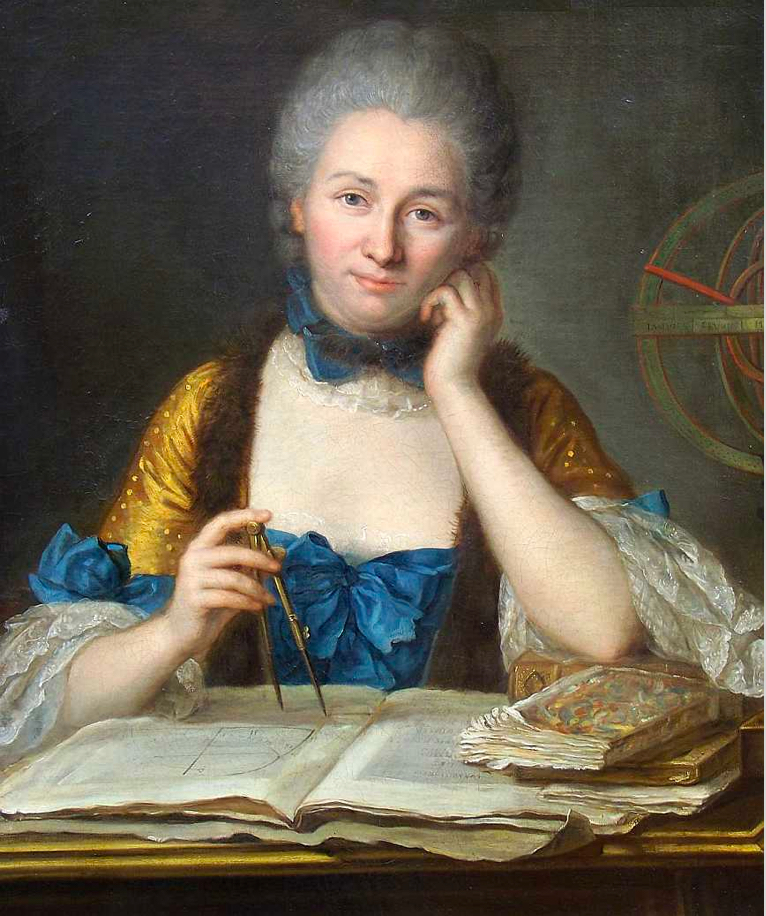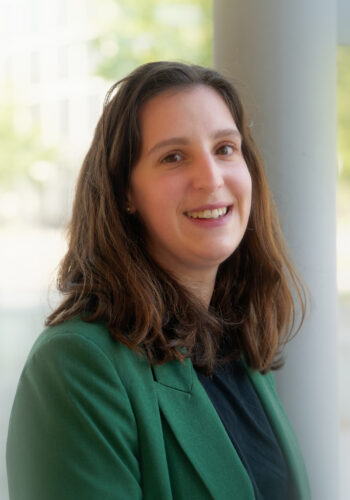Pourquoi la Tech ?
Surement pour l’aspect expérimentations et l’innovation. Petite, j’aimais beaucoup fabriquer des choses mais j’étais loin de penser devenir technologue et fabriquer des composants à échelle micrométrique ! La technologie est également tournée vers l’avenir en proposant des solutions
innovantes pour demain et c’est pour moi une façon d’apporter ma contribution à la société.
Votre Parcours ?
J’ai suivi un parcours universitaire plutôt classique. Après un baccalauréat scientifique, j’ai décidé de
m’orienter dans le domaine de la chimie avec l’obtention d’un DUT puis d’une licence de Chimie. J’ai ensuite poursuivi avec un master en science et génie des matériaux : Couches minces et Management Industriel à l’université Paris Saclay, que j’ai réalisé en apprentissage au centre de recherche Thales de Palaiseau. A la fin de mes études, j’ai été embauchée dans le laboratoire dans
lequel je travaillais déjà et j’y suis toujours aujourd’hui.
Votre première expérience professionnelle dans la Tech
J’ai vraiment découvert le monde de la Tech lors de mon apprentissage de Master qui portait sur la réalisation de nanostructures au profil bien spécifique dans le but d’obtenir des surfaces optiques dites multifonctionnelles. Le matériau innovant obtenu, inspiré de la nature, est alors capable de repousser l’eau, comme le fait la feuille de lotus grâce à ses rugosités de surface microscopiques. Il
permet également d’améliorer les performances optiques, comme observé sur les ailes transparentes à la texturation bien particulière du papillon Greta Oto d’Amérique Centrale. Cette première expérience de deux ans en salles blanches fut très enrichissante et m’a permis d’appréhender sereinement mon entrée dans la vie active mais aussi de continuer sur le sujet.
Que faites-vous aujourd’hui et pourquoi ?
Je suis actuellement Ingénieure R&D matériaux à Thales Research & Technology à Palaiseau. Je
développe des procédés technologiques de micro et nano-fabrication en salles blanches. Une partie de mes travaux constitue la suite de mon apprentissage et nous avons beaucoup progressé en élevant le niveau de maturité de cette technologie. Nous adressons maintenant différentes gammes de longueur d’onde en structurant différents matériaux et les surfaces réalisées sont actuellement
testées en environnement. L’idée serait, à terme, de pouvoir intégrer ce matériau innovant et auto-
nettoyant dans des systèmes tels que des caméras pour remplacer les essuie-glaces et autres moyens de nettoyage actuels. L’aspect transverse de mon poste me permet également d’apporter ma contribution sur plusieurs sujets du laboratoire, toujours en équipe, tout en développant mon expertise technique sur les équipements de microélectronique dont je suis responsable, notamment
la lithographie par nanoimpression.
Vos atouts pour ce poste ?
Je suis méthodique et rigoureuse, ce qui me parait être important pour le développement de procédés technologiques. Je suis également assez persévérante, ce qui m’aide à réfléchir aux meilleurs alternatives techniques lorsque les essais n’aboutissent pas aux résultats attendus. Les temps de développement sont parfois longs et nécessitent également une bonne dose de patience.
Vos défis passés, vos ratés, vos grands moments de solitude ?
Mon tempérament assez discret m’a valu quelques moments de solitude, notamment lors des premières présentations en auditorium. Depuis, j’ai pris confiance en moi et je ne redoute plus l’exercice. D’un point de vue réalisations technologiques, les ratés sont nombreux dans le domaine de la recherche mais correspondent plutôt à des expériences qui rendent la réussite possible.
Vos meilleurs moments, les succès dont vous êtes fière ?
D’un point de vue professionnel, chaque résultat concluant en micro et nano-fabrication est un petit succès ! Je dirai peut-être mon embauche en 2017 après mon apprentissage avec le sentiment d’avoir trouvé ma voie en intégrant le domaine de la recherche et de l’innovation. Depuis, les années sont rythmées par quelques belles réussites technologiques. Obtenir un composant fini après avoir développé un procédé et dont les performances sont en accord avec les spécifications est quelque
chose de très gratifiant. D’un point de vue personnel, je suis fière de la famille que j’ai avec mon conjoint et ma fille.
Des personnes qui vont ont aidée ou au contraire rendu la vie difficile ?
D’abord, mes parents qui m’ont aidée à trouver ma voie en m’encourageant et en me soutenant sans me restreindre. J’ai aussi eu la chance d’être encadrée et formée par Gaëlle Lehoucq pendant mon apprentissage de Master. Je découvrais le monde des salles blanches et de la microélectronique et elle m’a beaucoup appris, toujours dans la bienveillance. Mon manager actuel, Patrick Garabédian, me permet également de progresser en me laissant de l’autonomie tout en m’encourageant dans
mes prises de décision. Mes collègues m’ont aidée à m’épanouir dans mon travail et à prendre
confiance en moi. Le travail en équipe au laboratoire permet à chacun d’apporter son expertise et
d’aider à sa manière.
Vos envies et défis à venir ?
J’aimerais participer à de nouveaux projets et découvrir de nouveaux sujets pour continuer à monter en compétences. Un peu comme les technologies et composants que nous faisons monter en maturité à TRT avant de les transférer aux unités à TRL5, l’idée est de développer mon expertise
technique avant de pouvoir peut-être dans quelques années intégrer une des unités du groupe,
toujours sur un poste technique.
Que faites-vous-en dehors de votre travail ?
Je profite de ma famille et de mes amis. J’aime nous créer de beaux souvenirs lors de balades ou d’escapades et observer ma fille grandir à vue d’œil. J’ai également commencé depuis quelques mois à suivre des cours de sculpture et de poterie où chacun crée ce qu’il souhaite, ce qui me permet d’exprimer ma créativité. Différentes techniques sont utilisées pour transformer le matériau afin
d’obtenir un objet fini, c’est un peu le prolongement de ce que je fais au laboratoire finalement.
Vos héroïnes (héros) de fiction ou dans l’histoire ?
Une héroïne scientifique qui m’a récemment marquée est Katie Bouman, spécialiste d’imagerie computationnelle. Elle a grandement contribué à l’obtention de la première photo d’un trou noir en 2019, puis du trou noir de notre propre galaxie, appelé Sagittarius A* en 2022, en mettant au point
un algorithme permettant de reconstituer une photographie à partir des informations obtenues avec les télescopes du monde entier. Cette belle découverte est le résultat d’une collaboration internationale regroupant plus de deux cents scientifiques et montre également que derrière chaque
héro ou héroïne est associée toute une équipe.
Votre devise favorite ?
Vivre le moment présent.
Un livre à emporter sur une ile déserte.
J’emporterais sûrement « La mâchoire de Caïn » de Edward Powys Mathers connu également sous le
pseudonyme Torquemada. Il s’agit d’un roman policier dont les cent pages ont été placées dans le désordre. Le lecteur doit retrouver les six victimes et meurtriers ainsi que l’ordre exact des pages de l’intrigue. A ce jour, seules quelques personnes y sont parvenues. J’ai récemment commencé à
mener l’enquête et le cadre de l’île déserte pourrait être idéal pour résoudre l’énigme complexe.
Un message ou un conseil aux jeunes femmes.
Je n’étais initialement pas prédestinée à faire des sciences et pourtant me voilà en R&D. Je conseillerais de ne pas se fermer de portes et de s’informer un maximum pour choisir la voie qui vous correspond… Et pourquoi pas la Tech ?


